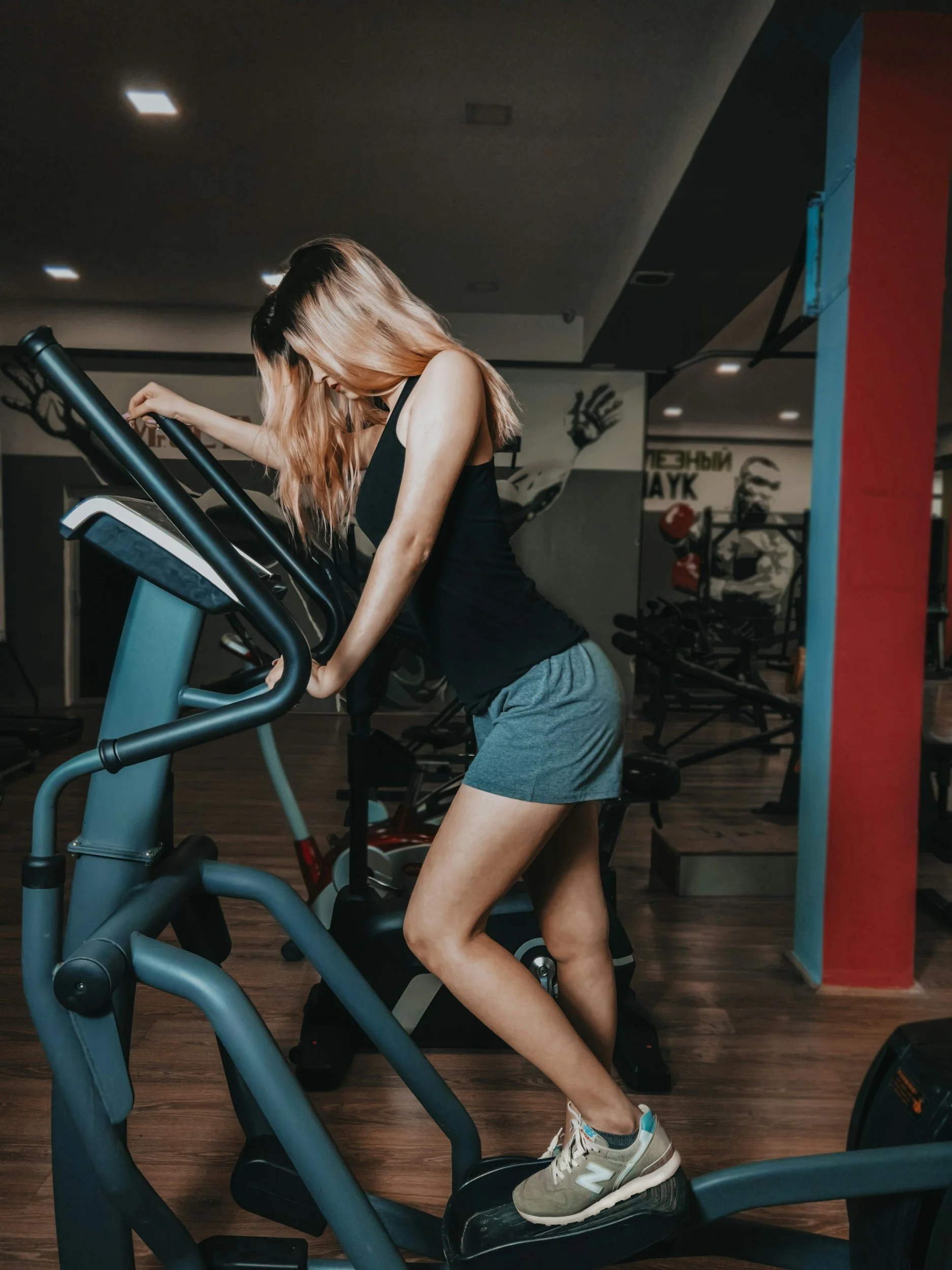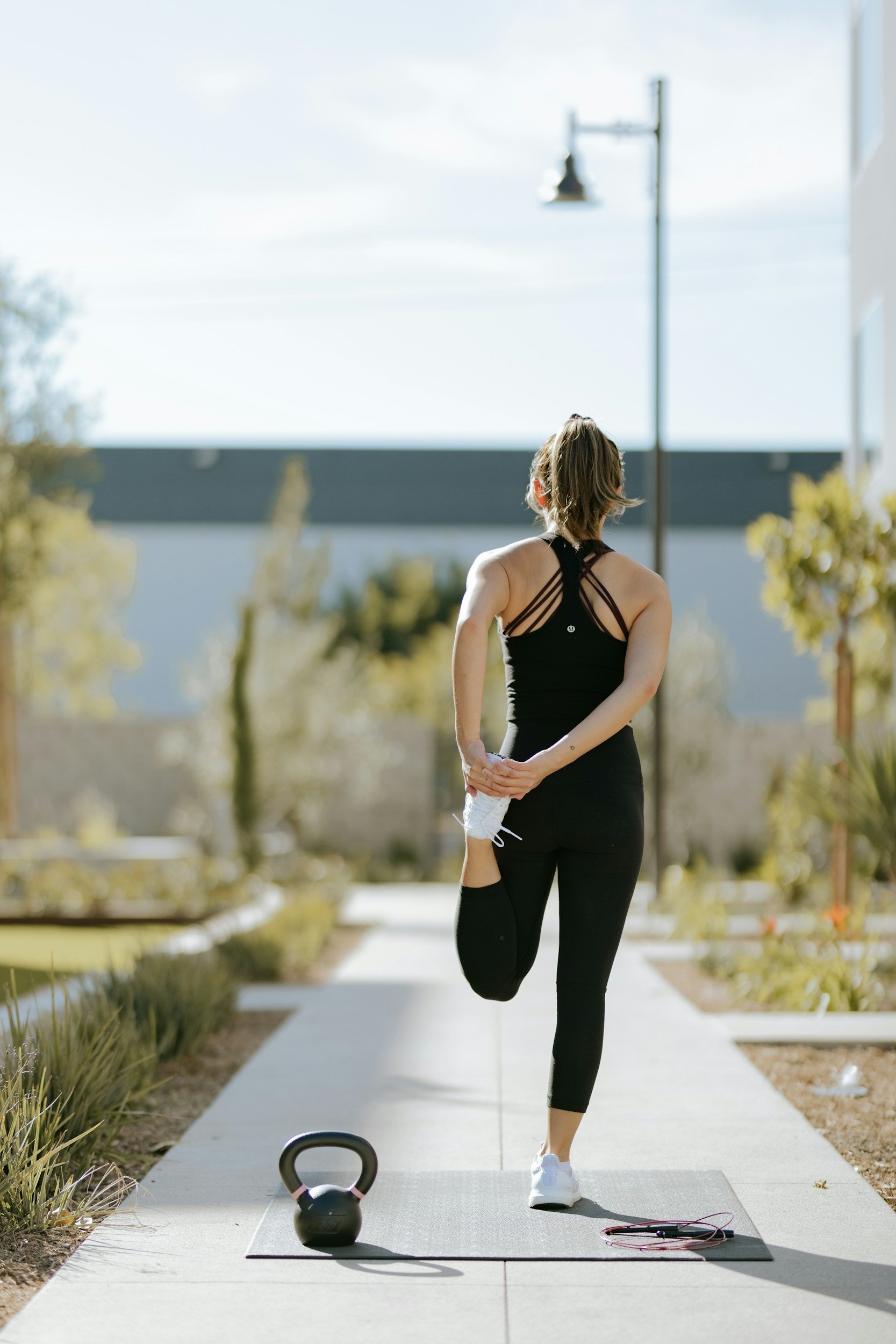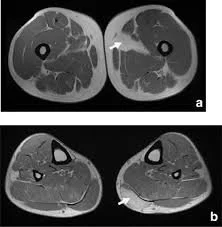
Can Exercise Really Reverse Heart Aging? What a Landmark Study Actually Shows
A landmark NIH-funded study shows that structured exercise can partially reverse age-related heart stiffening in middle-aged adults. This article breaks down the science, explains why cardiovascular disease remains the leading cause of death, and shows how rebuilding capacity through progressive movement supports long-term health and longevity.

Stretching: What It’s Actually Good For (and What It Won’t Fix)
Stretching is one of the most common tools people use for tightness, pain, and recovery. A 2025 Delphi consensus study clarifies what stretching actually helps with, where it falls short, and why strength and progressive loading matter more for long term movement health.

More Muscle, Less Belly Fat: What Body Composition Tells Us About Brain Aging
Emerging MRI research shows that higher muscle mass and lower visceral fat are associated with younger brain age. Learn why strength training, body composition, and physical therapy matter for long-term brain health and longevity—especially for active adults in NYC.

Sarcopenia, Aging, and the Levers You Can Control
Sarcopenia describes the age related loss of muscle mass, strength, and function. While muscle loss is part of aging, research shows you can slow its progression and preserve physical capacity through progressive strength training, balance work, and proper nutrition.

Coffee, Heart Rhythm, and a Surprising Reframe
For years, people with atrial fibrillation were told to avoid coffee. New randomized research suggests the opposite. The DECAF trial found that patients who continued drinking caffeinated coffee had a significantly lower risk of AFib recurrence. Here is how this changes the conversation around caffeine, heart rhythm, and long term health.

Is Toe Strength an Overlooked Marker of Aging and Longevity?
Grip strength has long been linked to longevity, but new research suggests toe strength may decline even earlier and play a critical role in balance, walking, and fall prevention. This article explores the science behind toe strength, how it compares to grip strength, and why maintaining full-body capacity is essential for aging well.

How to Get Active Again Safely in NYC After a Long Layoff
Getting back into training after a long layoff can feel overwhelming, but you do not need aggressive workouts to make real progress. This guide breaks down Zero Point One Physical Therapy’s approach to rebuilding strength and capacity safely, using walking, foundational strength work, and simple scheduling so you can return to activity without setbacks.

Strength and Power: The Foundation and the Expression That Support Long-Term Longevity
Strength and power work together to support long-term health. Research shows that muscle power declines earlier and faster than strength, which is why it deserves intentional training. This article explains how muscle, range of motion, and foundational strength prepare your body for safe and effective power development that supports longevity.

What Actually Happens During Manual Therapy? The Science Behind Fascial Manipulation and Why It Helps Active Adults Move Better
Manual therapy is more than temporary relief. A decade of research shows that Fascial Manipulation creates real changes in pain, mobility, proprioception, and movement quality. This article explains how it works and why manual therapy is most effective when paired with progressive strength training.

Why Strength & Movement, Not Rest, Is the Foundation for Healing
The body is not fixed or fragile. It is constantly rebuilding itself. Research shows that you replace nearly three hundred thirty billion cells every day. Endurance training, strength training, and circulation all influence this natural repair network. A landmark study found that runners maintain three to four times more circulating repair cells than sedentary adults, and when combined with progressive strength work, this biology becomes one of the most powerful drivers of long-term healing. At Zero Point One Physical Therapy in NYC, this science shapes how we help active adults recover from pain and build resilient, high-performing bodies.

Does Running Cause Knee Osteoarthritis? A Systematic Review Says Otherwise
New research shows that running doesn’t cause knee arthritis — it may actually protect your joints. A 2023 systematic review found that runners experience less knee pain, healthier cartilage, and a lower risk of knee replacement than non-runners. Learn why running builds joint capacity and how strength training supports knee health and longevity.

How Ultra-Processed Foods May Be Accelerating Knee Osteoarthritis, Especially in Women
Zero Point One Physical Therapy in NoMad NYC offers personalized, one-on-one sessions designed to relieve pain, rebuild strength, and improve performance. Our expert physical therapists combine hands-on care with progressive, fitness-forward training so you can move better, feel stronger, and live your fullest life.

Why Muscle Strength Is the Strongest Predictor of Function in Advanced Knee Osteoarthritis
A new 2025 study in Musculoskeletal Science and Practice found that muscle strength, not pain, best predicts how well people with knee osteoarthritis move and function. Even small gains in leg strength can lead to major improvements in mobility, independence, and quality of life.

Sauna, Hyperbaric Oxygen, and the Future of Human Performance: Expanding the Tank and Supercharging the Cargo
Sauna and hyperbaric oxygen therapy may look like opposites, but research shows they complement each other: sauna expands your body’s circulatory “tank,” while HBOT fills that tank with more oxygen. The result? A new frontier in endurance, recovery, and human performance.

Sleep and Endurance: The Performance Edge Most Runners Overlook
Most runners focus on mileage and training plans, but sleep may be the missing link for performance and recovery. At Zero Point One Physical Therapy in NoMad, NYC, we explore the science behind how sleep shapes endurance, reduces pain, and speeds healing.

Stronger Legs, Sharper Minds: How Exercise Protects the Aging Brain
At Zero Point One Physical Therapy in NoMad, NYC, we help active adults build both physical and cognitive resilience. Research shows stronger legs predict slower cognitive decline, while strength, aerobic, and mind–body exercise each protect different aspects of brain health. Learn how movement supports memory, independence, and long-term healthy aging.

The Foundations of Movement: Building Blocks for Health and Longevity
Most people chase the latest workout trend or gadget, but real movement health comes down to four fundamentals: range of motion, strength, endurance, and speed. These are the “primary colors” of your body, and the way you blend them determines everything from mobility to power to stability. Learn why training these foundations consistently is the key to resilience, performance, and longevity.

Isometric Exercise and Blood Pressure: A Surprising Tool for Longevity
Cardiovascular disease remains the leading cause of death worldwide, but a surprising solution is emerging. A large-scale meta-analysis found that isometric training—static holds like wall sits and handgrip squeezes—outperforms other forms of exercise in lowering blood pressure. With average reductions comparable to first-line medications, isometrics may be one of the simplest and most powerful tools for long-term heart health and longevity.

Mileage First, Intensity Second: What Recreational Runners Can Learn from the Data
A study of over 2,300 recreational runners found that weekly mileage is the strongest predictor of race performance at every distance. Mileage drives bigger improvements than intervals or tempos, which only add gains once a base is built. At Zero Point One PT, we apply the same principle in rehab: build capacity first, then layer on intensity.

Why Sleep May Be the Most Overlooked Injury Prevention Tool
Everyone is searching for the next best exercise or supplement to prevent injuries—but the most powerful tool is already in your hands: sleep. Research shows that less than 7 hours per night raises your injury risk by 70%, while more than 8 hours can cut it in half. Sleep is when your body resets stress, repairs tissue, and restores balance. At Zero Point One Physical Therapy, we see sleep as the ultimate reset button—critical for staying injury-free and moving with confidence.
